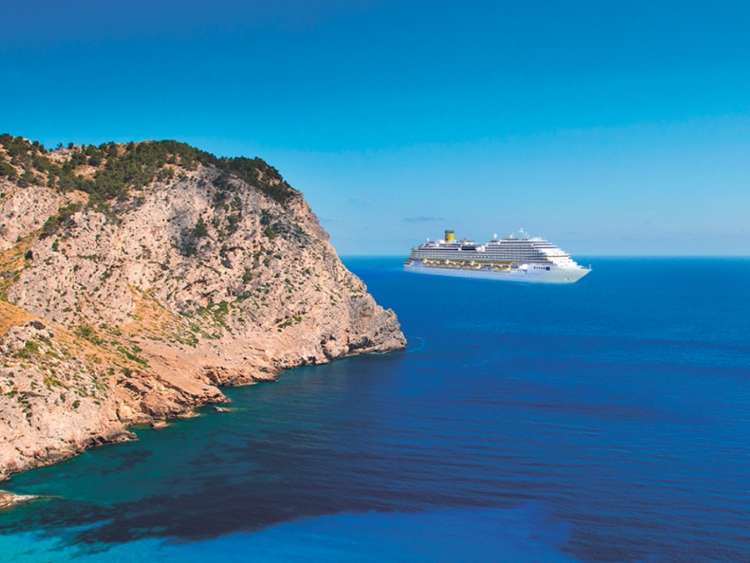
There are several types of common cruise ship illness. These include food poisoning, Norovirus, and seasickness. Read on to learn more about cruise ship illnesses. If you've never experienced any of these illnesses before, you should definitely consider taking a cruise! Learn more about food poisoning and Legionnaires disease on cruise ships. These are some of the most common diseases on cruise ships. Each can cause different symptoms.
Norovirus
Royal Caribbean's ship was quarantined due to norovirus. Crew and passengers returned home from a seven day trip. The virus infected crew and passengers were able to return to the ship, which was docked at Port Everglades, Florida. The CDC says that between 19 and 21 million people in the US contract the illness every year, but the exact number of passengers affected is not known.
Researchers estimated that approximately 2.3 percent of passengers would contract norovirus infection within eight hours. In reality, however, norovirus infection rates are much lower at less than 5%. In fact, in 2002, seventy-four passengers and two crew members were infected with acute gastroenteritis. The data suggest that the strain was probably originating in Sydney. These findings raise concerns about the efficiency of the simulations.

Food poisoning
A recent outbreak of food poisoning, a gastro-intestinal illness, has occurred on a cruise ship. The Oasis of the Seas, a Royal Caribbean cruise ship, will cut its journey short after more than 250 passengers become ill due to the outbreak. The company acknowledged in writing that there was an outbreak on one of their ships. It is important to note that the CDC's investigation of the Oasis outbreak is ongoing and not a comprehensive analysis of the problem.
People can experience food poisoning from cruise ships. It can cause vomiting, fever, and other symptoms. Food poisoning can be deadly, although the symptoms are similar to other types of illness. People can become sick from eating contaminated foods or drinking water. A variety of bacteria, viruses, and parasites can also cause foodborne illness.
Legionnaires' disease
Although legionnaires’ disease has been reported aboard cruise ships, the victims have never been able find the source. One case reported on a cruise ship in 1995 involved a 67-year-old male with a history of heart disease. The patient's sputum and the ship's water supply were both positive for Legionella pneumophila. Monoclonal antibodies subtyping and genomic fingerprinting confirmed the infection. The CDC sets safety standards to ensure that swimming pools are not used on cruise ships. There is an increased risk for legionnaires' diseases if a cruise ship fails to drain its swimming pools.
Even large cruise ships are vulnerable to disease. While cruise ships invest in the biggest, grandest, and best-designed vessels, many of them are old and have aging water systems and plumbing. The victims of the disease could bring a lawsuit against the ship. It could cause serious reputational damage to the owners. Hence, it is essential to keep water systems as clean as possible, regardless of size.

Seasickness
There are many ways to treat seasickness while on cruise ships. Remember that there is no one remedy that works for everyone. If you have experienced seasickness before, you might be familiar with the best method to help you. If you are not familiar with the best treatment, it is worth trying several options in case your body does not respond to one. Many people swear that seasickness makes you feel contagious.
To avoid feeling seasick on a cruise ship, choose a cabin on the lower deck or in the middle of the ship. These areas have less movement and swaying than the rest of the ship. The best choice for you may be a midship cabin that has a balcony. You might choose to be closer to the deck at the back or lower if seasickness is a problem.
FAQ
How do I pick the best cruise line?
Choosing the right cruise line is easy. First, decide what type of cruise you would like to take. Are you looking for a smaller, intimate cruise or one with many people? Then consider how much money you want to spend. If you are looking to save money, consider cruises that offer all-inclusive packages. This means you don't have any extra cost for meals, drinks or entertainment. You should also ensure that your cruise line offers good family programs if you're planning on a family trip.
What is the all-inclusive cruise ship?
They do not include meals for guests with restricted diets. They do not offer room service, laundry or other amenities, such as spas, gyms, and pools.
Some cruise lines also offer all-inclusive packages that include everything, except alcohol. These packages often include airfare, hotel accommodations as well entertainment and beverages.
Where should my cruise take me?
If you are interested in visiting different ports of call, you should consider where you want to visit. You can also use this information to help narrow down your search. If you are passionate about history, you may want to take a cruise that takes you to places like Alaska, Bermuda and Canada. You might prefer a cruise that includes beaches and water sports such as Jamaican, Aruba, Costa Rica or Panama, Tahiti or Costa Rica.
Statistics
- For an example of savings, Royal Caribbean offers up to a 40% discount with a dining package. (travel.usnews.com)
- The line estimates savings of 50% when you purchase this bundle. (travel.usnews.com)
- *20% Gratuities Apply on Free Unlimited Open Bar; Free Specialty Dining. (ncl.com)
- You'll need to budget around $80 per person per day for this option – and an additional 18% gratuity. (travel.usnews.com)
External Links
How To
How to keep safe while on a cruiseship
There are many things to be aware of before you board a cruise ship. So that you don't get in trouble, it is important to know how to behave aboard. Here are some safety tips that will help you enjoy your trip.
-
Be mindful of where you are at all times. People often gather onboard cruise ships to share meals. You're often surrounded by people who are eager to talk and eat. It can be easy to get distracted. Do not let people distract you from your task. If you see someone doing something dangerous, like smoking or drinking alcohol, tell them politely to stop.
-
When you board the ship, keep your room key close by and give it to the person checking in. If you get lost or need to be found, this will help you to locate your shipmates. You should also have your passport on you.
-
Your valuables should be kept out of reach. Most cabins are equipped with drawers beneath the bed. It is a good place to store valuables like money, credit cards, passports, etc. Also, make sure nothing valuable is visible in plain view. Keep your bags hidden in the closet.
-
Keep hydrated. Even though cruise ships are well-stocked with water, it can sometimes be hard to remember how much. Take advantage of the free bottled water available throughout the ship. You should avoid becoming dehydrated. Dehydration makes you tired and cranky, leading to fights or accidents.
-
Always pay attention to announcements. Announcements can be found everywhere including on television screens and on public address systems. They include safety procedures, emergency exits, and even weather reports. These announcements will be of great importance. They might save your life!
-
Always lock the cabin before you leave. No matter how friendly or helpful a crewmember may appear, lock your cabin. Thieves often break in through unlocked doors. If you need to use the restroom, ask a crew member for permission first.
-
Avoid going alone overboard. It can take some time for the ship's crew and you to be rescued from the water. You may attract sharks or other sea creatures to your body while you are still on the ship's crew. You should wait until help arrives.
-
It is forbidden to smoke in the elevator. These elevators are pressurized, meaning smoke can build up quickly. Get out as soon as you feel dizzy. You can still breathe even though it is outside fresh.
-
Be familiar with the evacuation procedures. Every year, thousands are killed in elevator accidents. If an emergency occurs, follow the instructions on the screen.
-
Learn the basics of the fire drill. Fire drills are held regularly, often once per day. Everyone on deck must evacuate when there is a drill. Follow the crew members' instructions. Once the drill has been completed, return back to your cabin.
-
Ask questions before you accept food or drink. Cruisers can get food poisoning. It is common for people to not realize that certain foods can't be eaten onboard ships. For example, raw oysters are forbidden aboard most cruise ships. If you're unsure whether or not the food you've been offered is safe, politely refuse and look for another meal instead.
-
Be careful when using the pool. There have been many cases of passengers falling into the pools accidentally. This is a common occurrence. You can also slip and fall off the deck at any moment. Wearing proper footwear is a must and paying attention to the surroundings are important.